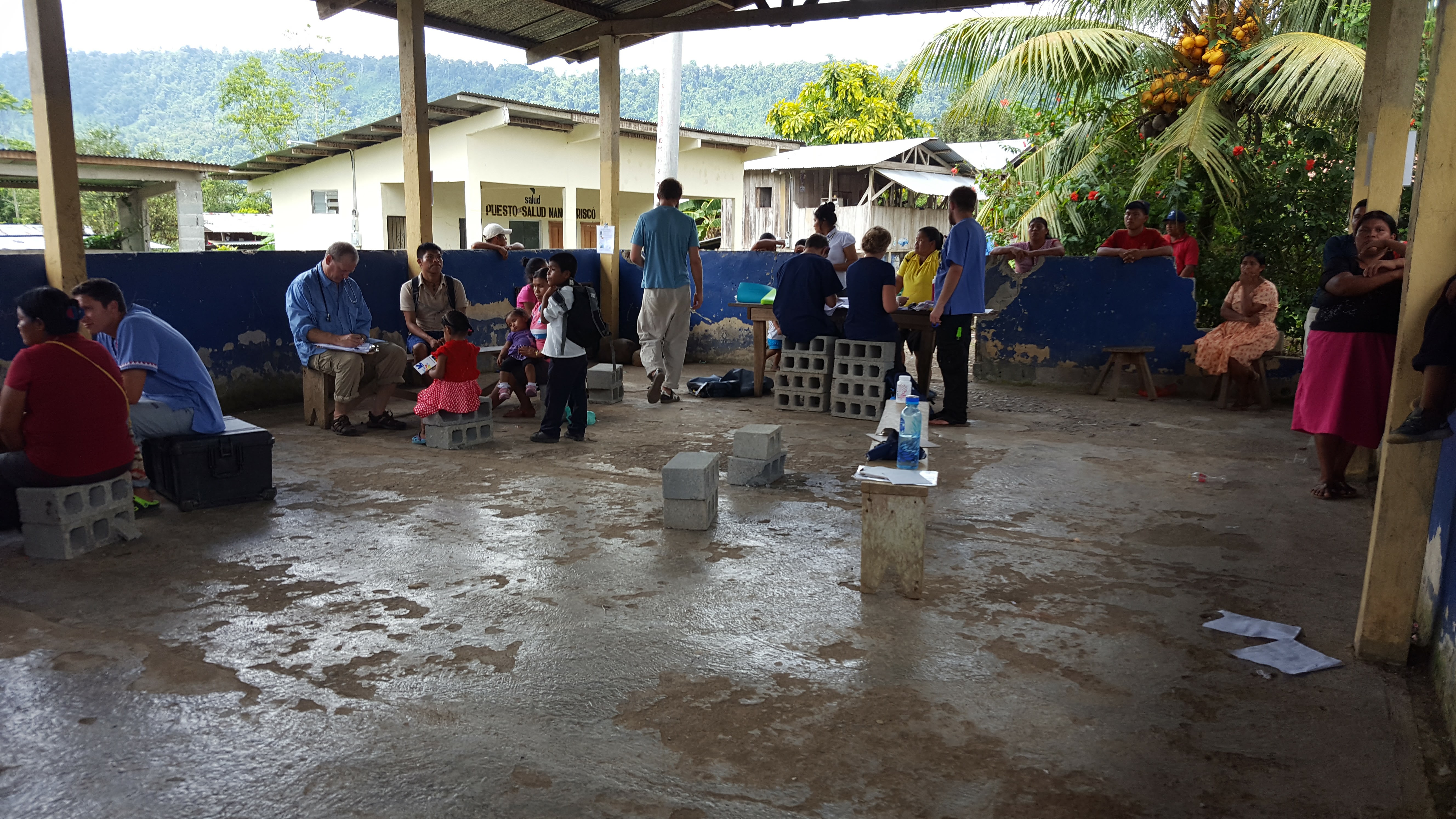I spent last week with the Floating Doctors in Bocas del Toro providing medical care to the Ngabe people in western Panama. In the jungle, there is little concern about prior-authorizations or deductibles. There is also a critical lack of access to services that we have available in the US. The Ngabe people do not own much. In fact, some kids do not even have names.
In the Ngabe community, there is a very high infant and child mortality rate. Many succumb to the numerous infectious diseases that are prevalent in that area. Some die from accidents from falls out of their homes that are built on stilts.
Because it is a bad omen for a named child to die, many mothers defer naming their children until they are sure they will survive. In clinic, unnamed children are referred to as “chichi” or child because they do not have a name yet. I saw children as old as three and a half referred to as “chichi”. As I took their medical histories, it hit me hard that they had nothing in the world, not even names because their mother was waiting to see if they would die first.
But, they smiled and played just the same. The fact that they were unnamed did not seem to wear on them so much, it was just part of their culture. This culture was vastly different from ours. Girls start bearing children from very young ages, 12 and 13 even. And they have many babies, many more than 10. Most girls drop out of school around the fourth grade because they are needed to help out in their homes with the other children.
In many of these communities, there is no electricity and only outdoor latrines. Many do not have clean drinking water. In the jungle, the sun sets around 6 PM every night. These people have nothing else to do but go to bed at that time. There are no computers or iPods to fall asleep to. Yet, they do not miss what they never had.
Most of these people are chronically infected with various kinds of worms. When we see them in clinic, we give most the treatment for worms to get rid of them and improve their nutritional status.
Over 90% of the Ngabe people live in poverty and most are unemployed. They farm their own food but over the past few decades are producing a much smaller variety.
When in clinic, there are not so many diagnostic tests available. We use what we have at hand and do the best we can with it. If the patient needs anything else, it often requires a trek of hours or days through the jungle to go to the nearest hospital. Patients there cannot afford this.
In the US, the expectation is not to wait for the doctor to see the patient. In Bocas Del Toro, patients walk hours to be seen and then wait hours to be seen. They do not offer one complaint but wait patiently. In the US, it is expected that a whole barrage of tests will be performed to diagnose whatever can be diagnosed. There, patients are appreciative of any help that is offered, even if it is to say that there is no help available.
We are truly fortunate to have the level of medical services that we do in our country. Doctors try to do their best wherever they may be with whatever they have. Even in places the world forgot and even with kids who have no names.
 Copyright secured by Digiprove © 2016 Linda Girgis, MD, FAAFP
Copyright secured by Digiprove © 2016 Linda Girgis, MD, FAAFP


